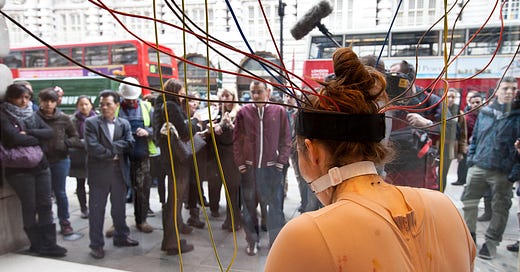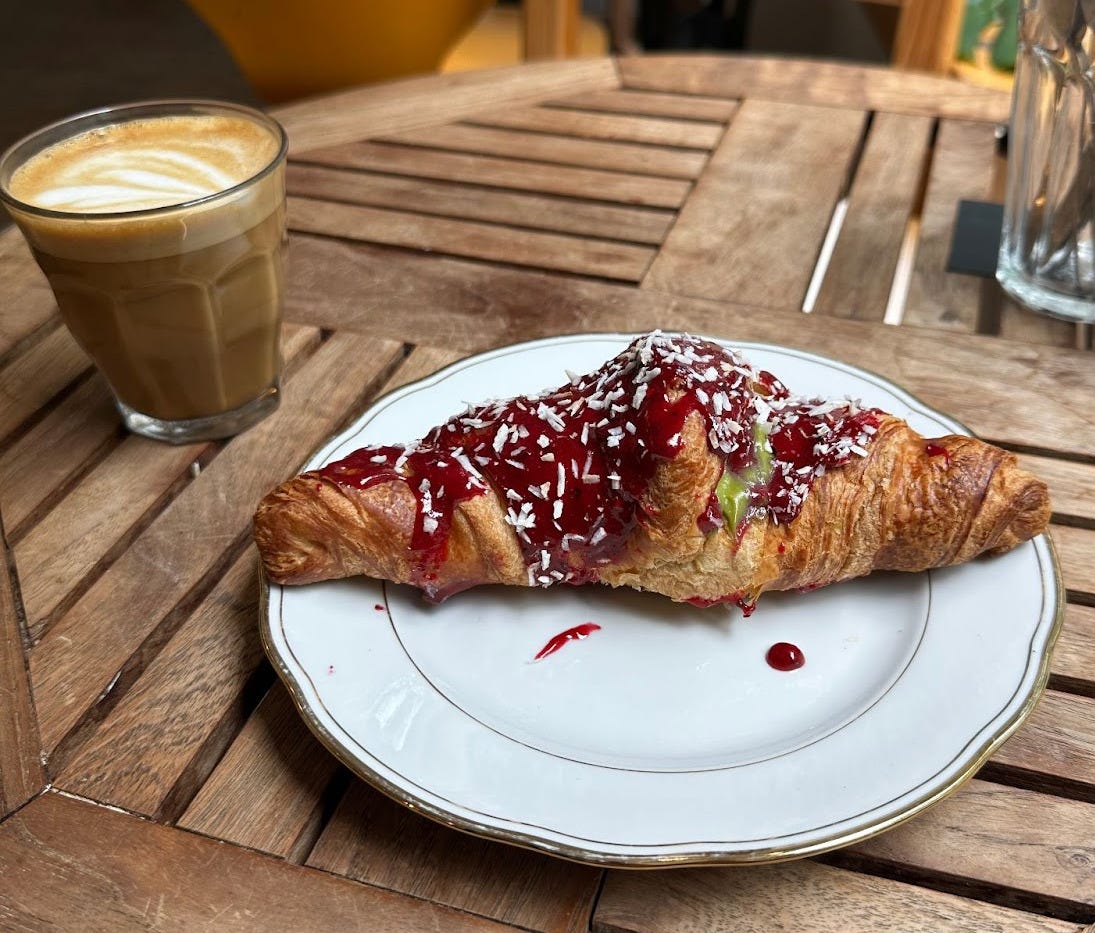Light, rupture, and creative kinship: from Cologne to Edinburgh
On solstices, zooclasm, and a powerful new podcast episode
Hi friends,
We’re now on the other side of the summer solstice.
This time of year always fills me with something bittersweet. I love the long, stretching light of these days, the way evenings feel slower and somehow more generous. But there’s also that quiet realisation that from this point on, the days begin to shorten. The light starts to recede.
It used to make me feel uneasy, like I was bracing for winter already. But more recently I’ve come to see it as a reminder to live more presently. The shrinking of the light teaches me to stay in the now, not to lose today by fearing tomorrow. Enjoy the warmth, the brightness, the fullness of this moment. The darker days are not here yet.
Performing animality in Cologne
I am now back from my travels to Cologne for the International Federation of Theatre Research (IFTR) conference, where I presented with the Performance in Public Spaces working group. It was a rich and generative space, full of challenging conversations and shared passions. Also, it was hot. Very hot. Luckily, there was also a lovely vegan café (Hempies) around the corner from the venue that served the most amazing croissants I’ve had in years, which made the heat far more bearable.
My paper was titled Performance of Animality in the Public Sphere: Embodying Nonhuman Narratives in Carnivalesque Activism. It explored how performance can create spaces where nonhuman stories are not just told, but embodied. Drawing on examples like the Animal Testing Live Demonstration by Fighting Animal Testing, Lush & Jaqueline Traide (2012), and the work of Soya the Cow (2016-), I discussed how activist performance can use grotesque aesthetics, absurdity, humour, and sensory immersion to disrupt species hierarchies and engage audiences on a visceral level.
One of the central ideas I explored is the carnivalesque; a term from Mikhail Bakhtin (1965) that refers to temporary ruptures in dominant power structures. Through theatrical exaggeration and embodied chaos, carnivalesque activism offers audiences a chance to feel, rather than rationally analyse, the realities of animal exploitation. It creates affective openings where different forms of empathy and solidarity can emerge.
Introducing Zooclasm
At the end of the talk, I introduced a new conceptual framework I’ve been developing called Zooclasm. It’s still a work in progress, but the idea is this: Zooclasm combines zōion (animal) with klasma (break or rupture), and refers to a deliberate act of breaking from species hierarchies through performance.
Rather than trying to speak for animals, Zooclasm asks what it might mean to creatively rupture the structures that silence them. It involves posthuman, affective, and often chaotic performance strategies that don’t aim to mimic or explain animal life, but instead create cracks in the dominant frameworks that keep animal voices peripheral.
Zooclasm builds on ideas from Haraway, Braidotti, and Wolfe, but it is rooted in performance practice; specifically the kind that invites discomfort, confusion, and emotional response. These are not neat, polished performances. They are messy, embodied, and risky. But I believe they have the power to shift something fundamental in how we relate to the more-than-human world.
🎙️ Podcast episode: Creativity with a Cause with Lauren-Marie Kennedy
Back at home, I had the joy of recording a new Performing Animal Rights podcast episode with artist and researcher Lauren-Marie Kennedy. If you haven’t heard of Lauren-Marie yet (or even if you have!), you’re in for a real treat.
In this episode, we talk about her path from childhood worm-rescuer to fierce creative activist, and how she came to describe herself as a creative with a cause. We explore how her art has evolved from visceral shock pieces to conceptual works infused with humour, poetry, and play.
What I loved about this conversation is how candidly she speaks about burnout, belonging, and building resilience through creativity. She talks about spoken word as both an expressive outlet and an academic tool, and how finding permission to "do it her way" transformed her practice.
Lauren-Marie’s reflections are moving, grounded, and full of quiet strength. If you're curious about how research, satire, Scottish veganism, and green-screen poetry all intersect, this is one to listen to.
Next up: Edinburgh for PHAIR
Next week I’ll be heading to Edinburgh for the PHAIR (The Society for the Psychology of Human-Animal Intergroup Relations) Animal Advocacy Conference. It’s taking place July 2–5 2025 at the University of Edinburgh, and I’m speaking on Thursday 3rd July as part of the Animal in Art & Media panel.
My talk, Performing Advocacy: The Transformative Role of Performance in Reframing Human–Animal Relations, builds on much of what I’ve been writing and thinking about lately. I’ll be exploring how performance art, from drag and protest to vigils and site-specific interventions, can reshape how people relate to nonhuman animals. This work draws on affect theory, trauma studies, and the aesthetics of resistance to consider how performance might move audiences beyond sympathy and toward action.
I’d love to connect if you’re attending. Please come say hello if you see me.
That’s all for now. I’ll be back soon with some thoughts from PHAIR, more on Zooclasm, and a few reflections on the creative projects beginning to take shape as the summer unfolds.
For now, I hope you find time to enjoy the long light. Be present with it. Let it in while it lasts.
With care,
Ben




